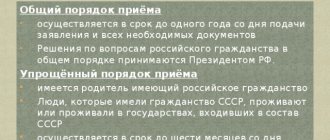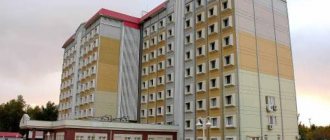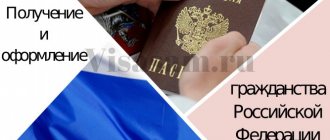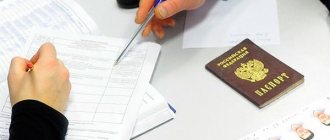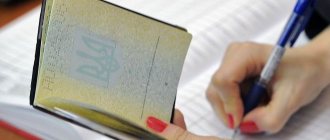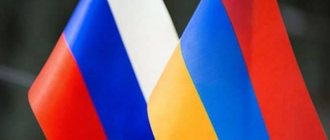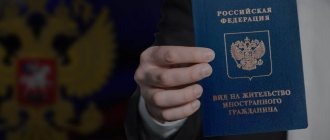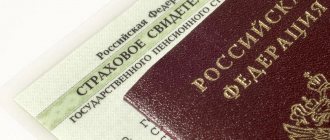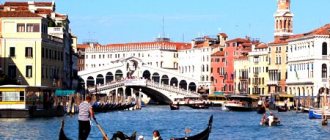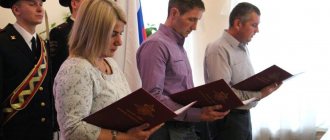The global events of the 20th century in Russia - revolutions, wars, the collapse of the USSR - led to the fact that many of our compatriots settled abroad. Not everyone managed to fully assimilate in their new place. Many families of voluntary and forced emigrants have been preserving the Russian language and traditions for generations. The largest number of immigrants from the territory of the Russian Federation live in the former Soviet republics. Let's discuss how the resettlement program from Moldova to Russia works and what it offers to compatriots.
Changes in the State Program for Resettlement in the Russian Federation
As the legal successor of the Russian Empire and the USSR, the Russian Federation considers itself responsible for the former citizens of these states and their descendants who find themselves outside its borders. On May 24, 1999, Federal Law No. 99-FZ “On the state policy of the Russian Federation towards compatriots abroad” was adopted, which determined how this policy will be implemented and who, from a legal point of view, is considered a compatriot. These, according to the law, include:
- People from the Russian Empire, the USSR and the Russian Federation, who are united by a common language, cultural and historical traditions, as well as their direct descendants in a descending line.
- Former citizens of the Russian Empire, RSFSR, USSR and their direct descendants.
- Residents of republics that were formerly part of the USSR, who remained on their territory and did not receive other citizenship.
- Citizens of the Russian Federation permanently residing abroad.
In addition to the responsibility to take care of compatriots, the Russian Federation takes into account its own demographic problems. One of the ways to solve them is to increase the country's population by including people who have the same language and mentality as the bulk of Russians. In this regard, on June 22, 2006, the President of the Russian Federation signed a decree that put into effect a special instrument - the State Program for the Resettlement of Compatriots to Russia.
At first, the duration of the program was limited, but later it was extended, and from 2021 it became indefinite and will operate until cancelled.
Benefits of participating in the program
Participants receive many advantages over other foreigners:
- Simplified procedure for acquiring citizenship. According to the general scheme, a foreigner receives a Russian passport in about 8 years; for a program participant, this period is reduced to 1 year. He is not required to obtain a residence permit or pass exams in the Russian language, history and legislation of the Russian Federation.
- Opportunity for displaced family members to participate in the program. The rules allow recognition as family members of persons who are not compatriots according to Federal Law No. 99.
- Duty-free import of a migrant’s property into Russia, including one passenger car.
- Compensation for travel expenses to your place of residence and luggage transportation. A family of three is reimbursed for the amount spent on one 5-ton container, if the family is larger - two.
- Payment of substantial "lift" when moving to priority regions: Buryatia, Transbaikal, Kamchatka, Primorsky, Khabarovsk territories, Amur, Irkutsk, Magadan, Sakhalin and Jewish Autonomous Regions. Those who choose a region from this list to live in will receive 240 thousand rubles per participant and 120 thousand rubles for each member of his family.
- Simplified employment, medical care and education immediately upon arrival under the same conditions as for citizens of the Russian Federation.
There are other benefits, such as social protection.
Ways to acquire Russian citizenship for Moldova
- RRVP
Documents and features of issuing temporary residence permits for citizens of Moldova
- Alena Motroy
- 12.02.2021
As a rule, Moldovans living in Russia are labor migrants. A temporary residence permit and work patent are valid only for a certain period, then they need to be reissued. This is not convenient if a foreigner wants to work permanently in the Russian Federation. Therefore, many visitors from Moldova decide to become Russian citizens.
To obtain a new status, you need to familiarize yourself with the methods of obtaining Russian citizenship for Moldova, the necessary documents, and the organizations that carry out this procedure. This will be discussed further.
A Moldovan can join the ranks of the Russians through:
- Naturalization. This is the name of the process of obtaining citizenship according to standard rules and the foreigner’s own will. Immigrants from the Republic of Moldova obtain Russian citizenship through the so-called or simplified procedure .
- Participation in the state program “Compatriots”. It includes residents of Moldova who were born into a Russian family, or who come from the USSR (the republic was part of the Union for 47 years).
- Project “Native Speakers of the Russian Language”. As the name suggests, perfect command of Russian is key.
Conditions for participation in the program
Any foreigner has the right to apply for Russian citizenship. Under certain conditions, he can even qualify for a simplified procedure. However, to participate in the Compatriot Resettlement Program, you must meet a number of strict requirements.
Requirements for applicants
In addition to the fact that the applicant must meet the criteria for the concept of “compatriot” established by Federal Law No. 99, he must:
- To reach the age of majority, persons over 18 years of age can participate in the program.
- Be competent.
- Speak Russian. The level of proficiency is determined during an interview.
- Have a profession that is in demand in the expected region of residence.
Members of his family can also move to Russia with the participant. This category includes:
- Marriage companion.
- Children, including those adopted or under the guardianship of the applicant.
- Parents of the applicant and his/her spouse.
- Siblings of a compatriot and his wife, as well as their children, even those adopted or under their guardianship.
- Grandparents and grandchildren.
Any adult member of the migrant’s family, except the spouse, can participate in the program independently.
Who can participate in the Program
The following persons are allowed to participate in the Program:
- Persons who previously had USSR citizenship and reside in the territory of the Republic of Moldova;
- Children of former citizens of the USSR;
- Subjects of the former RSFSR;
- Foreign citizens who have close relatives in the Russian Federation.
Also, all citizens and stateless persons who have historical roots in Russia are allowed to participate. In addition to them, close relatives of the participants themselves can also participate:
- Parents and spouses;
- Children;
- Grandparents;
- Siblings and brothers, their spouses;
- The applicant's grandchildren and nephews.
It is important that the potential participant does not have an outstanding criminal record and has reached the age of majority. Fully capable citizens who know the Russian language well are allowed to participate.
Important! You will be denied participation if you have a ban on entry into the Russian Federation. Also, the basis for refusal may be the presence of two or more administrative penalties in the last 12 months.
Algorithm for relocating a compatriot to Russia
To move to the Russian Federation under the program, a compatriot must adhere to a certain sequence of actions, which includes:
- Selecting a region of Russia.
- Collection of documents for participation in the program.
- Submitting an application.
- Obtaining a participant certificate.
- Preparation of documents necessary for relocation.
- Moving. By the way, you can apply for a temporary residence permit at the Russian Embassy in Chisinau and move after receiving it.
- Legal entry into Russia. When crossing the border, you must fill out a migration card indicating the purpose of the trip – “private”. You will need the MK to perform further actions, so you need to save it.
- Marking of arrival at the local branch of the Main Department of Migration Affairs of the Ministry of Internal Affairs (formerly FMS).
- Submitting an application for migration registration within the next 7 days. The basis is the entry of a compatriot into the Russian Federation. The tear-off coupon should also be kept.
- Submitting an application for issuing a temporary residence permit. If it was issued in Moldova, a note about this will be put in the passport within 5 days.
Features of choosing a region
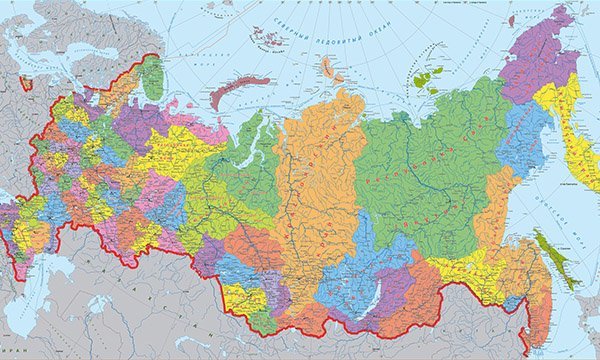
Choosing a region is an important stage of moving to Russia. First, it’s worth studying the current list of regions that participate in the State Resettlement Program. The criteria for regional programs may differ:
- conditions for applicants;
- level of benefits and guarantees;
- demand for the profession that the applicant has.
- the possibility of receiving benefits for the purchase of housing, and so on.
After receiving a program participant certificate, you will no longer be able to change your region. If life circumstances force a migrant to change his place of residence, he must first submit an application to the GUVM authority.
The truth about moving to Russia
The topic of migration is more relevant than ever for our Moldova. One of our readers was not indifferent to this and decided to share his experience of living in another country. Vlad Tonka writes:
“For several years in a row, a huge flow of Moldovan citizens has been leaving the borders of their native Moldova, fleeing unemployment, anarchy, lawlessness of Moldovan politicians, stupid statements and total impunity of corrupt officials, as well as the hypocrisy of those in power. They leave Moldova in search of work, normal earnings, acceptable living conditions, and in search of a bright future for their children. And I am one of them. But that is not where we are looking for a bright future. Russia has always attracted the residents of Moldova with its purchasing and payment power, its scope and great opportunities for self-realization. Both the state resettlement program and the family reunification program, open to the Russian-speaking population of Moldova and other republics of the former USSR, are a successful way to quickly change citizenship, obtain a passport of the Russian Federation and gain all the benefits that are open to Russians. This is self-deception. We are not welcome here. Speaking the same language does not mean understanding a person. The mentality is different, the humor is different, the attitude to life is different, the outlook on fashion, work, and life itself is different. Remember: Russia is one thing, but Moscow and St. Petersburg are another. All documents that you prepared in Chisinau for relocation, all translations certified by a notary and all medical examinations passed in Russia have no force. None at all. You can simply recycle them. We have to go through everything all over again - medical examinations, tests, translations of all documents, notarizations, photocopies. There are hundreds of them... It's easier to buy your own simple photocopier. This is serious. The queues at the Migration Services are huge, people spend day and night in them. Imagine for yourself - Moldova, Ukraine, Georgia, Armenia, Uzbekistan, Kazakhstan, Tajikistan, Kyrgyzstan. I missed Turkmenistan and Azerbaijan, they are also somewhere nearby... The line lasts for three weeks of daily duty, if you are lucky. It is necessary to occupy and control. Paid services can backfire on you, as there are many eloquent scammers who do everything “chic and quickly” (before the first border crossing). Now about earnings. Making money in Belgorod, Kursk, Lipetsk, Voronezh, Smolensk, Ryazan is also not possible, just like in Chisinau. But in Chisinau you are at home. Salary is 30,000-40,000 rubles, i.e. 10,000 Moldovan lei, of which 15,000 rubles. goes to rent an apartment (two-room), 5,000 rubles. – for utilities, 2,000 rubles. — for transport, 10,000 rubles. - for food (per person). No, you can meet 5,000 rubles in food a month if you live on potatoes with bread and pasta with tea. More mobile conversations. There are 10,000 rubles left, if any. And those who were luckier and managed to collect 20,000 rubles in a month. (there are only a few of these), $1 = 65 rubles. So consider it. What bright life are you and I trying to escape to, spending our earned blood and sweat money on an apartment and utilities in a foreign country? Banking specialists, do not flatter yourself with hopes of finding a job in a bank. Foreign exchange office workers, relax - there are no foreign exchange offices or exchange offices in Russia. Only in banks. Finding an exchange office for lei or hryvnia is not possible, these places do not exist. Only dollar and euro. Teachers, doctors, nurses, there is plenty of work for you. You will be torn apart by offers, but with a salary of no more than 15,000-20,000 rubles. Sales managers, rely only on yourself. Salary - 15,000-20,000 rubles, the rest are bonuses from sales (if you're lucky, the same amount). Builders, well, I bow to you, you are in great demand, and if you have golden hands, you have a chance to make your way to Moscow, create a construction team of your own kind, and even buy or build a house near a large city, as they say, undeva in sat. But sometimes they cheat you with your payment, impudently and brazenly, especially if you are not yet a citizen of Russia and only have a temporary residence permit (TRP). Finding a job with a temporary residence permit is more difficult than without it. With a temporary residence permit, you consider yourself half Russian, and you want to earn a lot and for a long time. And when you come for a short time, you don’t worry about living conditions; there would be somewhere to sleep and eat. Families with children, or even several: education is free, but, nevertheless, every day you will spend 100-150 rubles for one child going to a Russian school. (food, transport, mobile communications). And per month this translates nicely into 2000-3000 rubles. + money for school security, cleaners who wash the school throughout the day, plumbing supplies, birthdays of teachers and head teachers. God forbid you get sick, they drive you to different clinics: don’t expect to meet a civilized Chisinau clinic with all the doctors in one place and equipped with the latest equipment. Be careful how and with what they vaccinate you, take tests and put things in your mouth, the unsanitary conditions are worse than in Moldovan villages. The quality of the products is not Moldovan, everything is artificial, watery, sometimes expired. Vegetables are just water and household chemicals, odorless and colorless. Cheeses and sausages are a mixture of unknown products, materials and flavors. What's the point of my whole story? We are trying to run away from Moldova, from anyone, but we don’t understand that we are trying to run away from ourselves. There is no need to run, especially from those who prevent us from living in Moldova. It is easier to restore order in our native Moldova than to try to restore order or change it in Russia. You are not welcome here and you are not particularly welcome, even though we all speak the same language. Our homeland is MOLDOVA, where they speak the language that our parents spoke, the language that we are comfortable speaking, where we were born, where we played as children, where we studied, where every kilometer is familiar, where where we kissed for the first time, where our children were born. Nationalists and those who want to quarrel with everyone are everywhere. We just have to fight them all together. Once and for all. Don't look for a good life in Russia. A good life is in Moldova.”
Applying for the program
Since the tool was developed exclusively for compatriots, it is necessary to document compliance with its criteria.
You should take the collection of documents very seriously, because it is on them that the final decision is made. Mistakes can prevent you from moving to Russia.
Package of documents
To apply for participation in the resettlement program, you must fill out the text of the application in Russian, attach 2 photographs 3.5 x 4.5 cm, as well as originals and copies:
- identification documents of the applicant and all members of his family included in the application;
- documents confirming the fact of relationship between the applicant and family members (birth/marriage/adoption certificates, etc.);
- justification for the applicant’s right to move to the Russian Federation as a compatriot;
- certificates, diplomas and other documents on education and qualification level.
The documents attached to the application may be issued at different times. If they are written in another language, they should be translated into Russian and notarized. In some cases, apostille may be necessary.
Region Definition
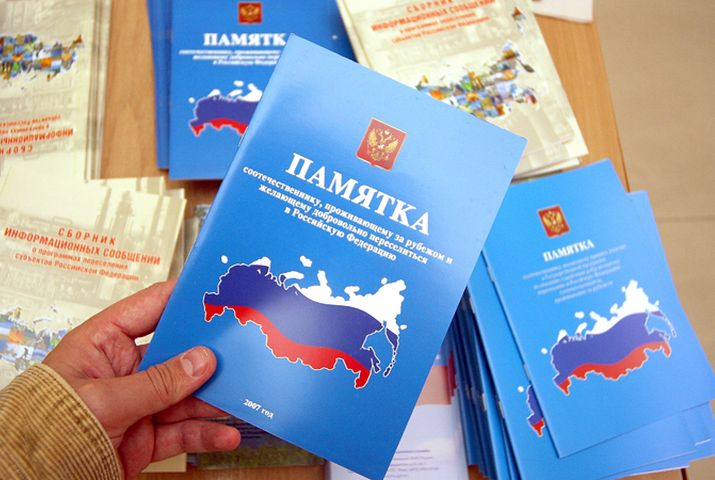
Moving to Russia can be divided into several stages. First, you need to decide on the subject in which the person is going to live, work (study). You are allowed to apply for participation in the compatriot resettlement program in 2021 both at home and in Russia. The second case is possible when a person lives in the Russian Federation as a labor migrant.
More than half of the country's regions participate in the program every year. Thus, it is possible to settle almost everywhere, however, when moving to priority regions, the allowance paid will be much higher (subjects of the Far Eastern Federal District).
The regions of Eastern Siberia and the Far East are characterized by minimal population density, and it is on them that the program focuses. When choosing priority entities, payments for family members increase to 120 thousand rubles.
Where to go
Applicants who are in their home country apply to the Consular Section of the Russian diplomatic mission. The Russian Embassy in the Republic of Moldova is located at: 2004 Chisinau, st. Stefan cel Mare, building 153.
Contacts:
- telephones: +373 (22) 23-49-42, 23-49-43, 23-49-44;
- fax: +373 (22) 23-51-07;
- Email:
More information about the work of Russian diplomatic missions in the Republic of Moldova, including the procedure for admitting compatriots to the state resettlement program, can be found on the official website of the embassy https://moldova.mid.ru/home.
Application review period and financial investments
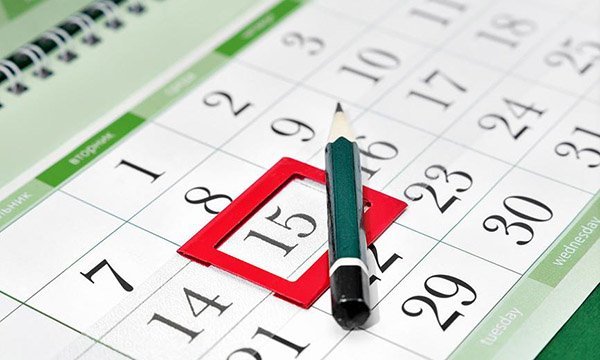
Papers submitted to the Russian Embassy will be reviewed by the relevant government agencies of the country. The legislation allows up to two months for this procedure and decision-making. Therefore, a response can be received in approximately 60 days.
There are no costs involved in submitting the application itself, but you will have to pay for processing translations, making copies and travel to the embassy.
Issuance of a certificate of participation in the program
The status of a program participant is confirmed by a special certificate. This official document is prepared on strict reporting forms and is a green booklet. Its validity period is 3 years.
The certificate contains information about its owner and his resettlement program. The document confirms that the participant and his family members have assumed certain obligations to the Russian state. In return, it granted them the right to receive resettlement assistance and government guarantees upon arrival at the location specified in the program.
The decision on admission to the State Resettlement Program, issuance of a migrant certificate or its cancellation is made by the regional divisions of the Main Directorate for Migration of the Ministry of Internal Affairs of the Russian Federation.
The program participant is required to come to the embassy in person to receive the certificate. During the issuance of the document, he will be explained the rules of entry into and exit from Russia, and the rights and obligations of a foreigner in the Russian Federation will be listed.
What to do if your application is rejected
If you receive a negative answer, you should not panic; instead, you need to contact the Russian Embassy and find out the reason for the refusal. Sometimes it can be easily resolved, so you can apply again.
Individuals who:
- Provided false information about themselves and their family members or provided false documents.
- They were deported less than 5 years ago. Any society prefers to acquire law-abiding citizens.
- They have an unexpunged conviction for crimes recognized as grave or especially grave, or are serving a sentence for them.
- Repeatedly throughout the year they were brought to administrative responsibility.
- Involved in the activities of extremist or terrorist organizations.
- They pose a threat to the residents of the Russian Federation and its constitutional system. To be in this category, it is enough to make public statements, for example, on the Internet, that could be interpreted as anti-Russian or inciting hatred.
- Voluntarily left Russia for permanent residence abroad.
- After registration, they went abroad and did not return for more than 6 months.
Rules for arrival in the Russian Federation
You should cross the border of the Russian Federation through legal checkpoints. It is there that a foreign citizen will be able to obtain a migration card, which will allow him to officially register with the territorial division of the Main Department of Migration of the Ministry of Internal Affairs.
How to apply for a temporary residence permit

A program participant can obtain a temporary residence permit in Russia both in the region chosen for residence and in the territory of Moldova.
Typically, the issuance of temporary residence permits is carried out within the quotas allocated to the region. Program participants are not subject to such quotas.
When obtaining a permit, they do not need a certificate of knowledge of the Russian language, history and legislation of Russia. However, they and their family members are required to present a certificate of absence of drug addiction and dangerous diseases: leprosy, tuberculosis, AIDS, etc. Such certificates are issued by authorized medical institutions.
Obtaining Russian citizenship by citizens of the Republic of Moldova
The general procedure for obtaining Russian citizenship by citizens of Moldova consists of many stages. For example, no earlier than one year after receiving a temporary residence permit, you should apply for a residence permit. And only after living in the Russian Federation for 5 years on the basis of a residence permit can you apply for Russian citizenship.
The resettlement program for compatriots allows you to become citizens of the Russian Federation through a simplified procedure. Its participants can receive a Russian passport after 1 year.
What Moldovan citizens need to know about the Russian program for the resettlement of compatriots
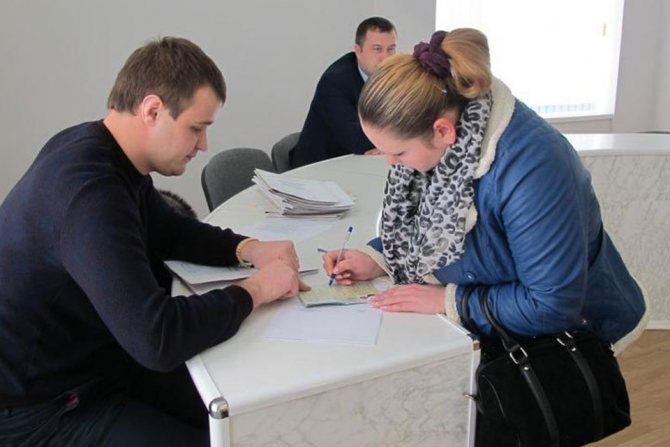
Participation in the State Program implies moving to a permanent place of residence
— Who in Moldova can participate in the State Program for the Voluntary Resettlement of Compatriots to the Russian Federation?
— Compatriots can become participants in the State program:
who have reached the age of 18;
having legal capacity;
meeting the requirements established by the State program and the regional program of the subject of the Russian Federation chosen by the compatriot for resettlement;
fluent in Russian (oral and written) at a level sufficient for rapid adaptation among the host community;
meeting the requirements for obtaining a temporary residence permit on the territory of the Russian Federation (if obtaining a temporary residence permit is necessary).
— How and where should I apply for participation in the program? How many times do you need to travel to Russia?
— Documents for participation in the resettlement program are accepted only at the reception of the consular department of the Russian Embassy in Moldova (Chisinau, Shchusev St., 85/1) by appointment. Registration is made in person, upon presentation of an identity document. All information on organizing registration is posted on the website of the Russian Embassy in the Republic of Moldova in the “Migration page” section. Without an appointment, on Fridays, from 8.30 to 12.00 (except for the last Friday of each month), applications for participation in the State Program are accepted from citizens wishing to move to subjects of the Russian Federation that fall into the category of priority settlement (regions of Transbaikalia and the Far East), as well as in the regions of the Siberian and Ural federal districts.
Private firms have nothing to do with the implementation of the State Program.
Participation in the State Program implies moving to a permanent place of residence; otherwise, the State Program participant’s certificate may be canceled and the compatriot will lose the right to obtain citizenship in a simplified manner.
— Is it possible to complete all the documents for resettlement without leaving Moldova?
— The consular department of the Russian Embassy in the Republic of Moldova accepts applications for participation in the State Program, issues a certificate of State Program participant, and also accepts documents for obtaining a temporary residence permit. The issuance of a temporary residence permit and registration of Russian citizenship to participants of the State Program is carried out only on the territory of the Russian Federation.
The compatriot must meet the criteria of regional resettlement programs
— Can the participant choose the region of resettlement? What are the criteria for potential participants in the resettlement program?
— The decision to participate in the State program is made voluntarily by a compatriot based on his conscious choice of place of residence, work and (or) study. A compatriot chooses a region for resettlement independently from among the regions participating in the implementation of the State program, taking into account the possibility of housing arrangement, employment, climatic features, educational opportunities, etc. Currently, the State program to assist the voluntary resettlement of compatriots living abroad to the Russian Federation abroad, 61 regions of Russia participate. A prerequisite is compliance with the criteria established by regional resettlement programs. These criteria can be found on the website of the Russian Embassy in the Republic of Moldova in the “Migration page” section. It should be noted that in all regions, the main criteria when considering an application from a potential participant in the State Program are the presence of vocational education, the demand for the profession in the labor market, and documented work activity. Therefore, we recommend that everyone, before submitting an application to a particular region, study regional resettlement programs, the requirements for participants in the State program, and the availability of vacancies in accordance with professional knowledge and skills. This can be done both on the “Work in Russia” website and on the websites of regional employment services.
The number of failures is constantly increasing
— How often and in what cases are those wishing from Moldova denied to take part in the program?
— The number of refusals under the resettlement program is constantly increasing. This is due to stricter requirements for migrants. The main reasons for refusals are: non-compliance with the requirements established by regional resettlement programs, lack of vacancies in the region that correspond to the education and professional skills of a compatriot. In some cases, refusals are issued due to the provision of false information. In addition, a significant part of refusals is due to the fact that Moldovan citizens have been working in Moscow and the Moscow region for a long time. For example, the Kaluga region recently made changes to the regional resettlement program, according to which the basis for making a negative decision is the implementation of labor activity in another constituent entity of the Russian Federation for 2 years before submitting an application for participation in the Kaluga region program.
— Who is entitled to lifts and what is their size?
— In accordance with the State Program, two categories of territories have been established to which participants of the State Program and members of their families can move:
— territories of priority settlement;
— territories that do not belong to the territories of priority settlement.
In territories of priority settlement, the amount of “lifting” allowances is:
240 thousand rubles. – participant of the State program;
120 thousand rubles. - a member of his family.
In settlement territories that do not belong to priority settlement territories, the allowance is:
20 thousand rubles - to a participant in the State program;
10 thousand rubles - to a member of his family.
Also, expenses for moving, transportation of personal property, as well as expenses associated with the preparation of documents determining the legal status on the territory of the Russian Federation are compensated.
In addition, most regional programs have established their own measures of material support for compatriots. This could be a one-time settlement allowance, partial compensation for rented housing, payment of expenses for passing a medical examination to obtain a temporary residence permit, confirmation of the equivalence of diplomas for medical workers, etc.
— Can a participant apply for one region, and then, having received Russian citizenship, move to another? Or is this not welcome?
— In accordance with the law, a participant in the State program must live in the settlement territory for at least 3 years. In case of departure for permanent residence from a subject of the Russian Federation, determined by the certificate of a participant in the State program, earlier than three years later, the citizen shall reimburse the costs associated with the payment of travel expenses, compensation for transportation costs, as well as costs associated with the preparation of documents determining the legal status in the territory Russian Federation.
— What costs should potential participants be prepared to pay to participate in the program?
— According to the terms of the State program, provision of housing for displaced persons is not provided. The housing issue is resolved independently at the expense of our own funds. If a potential compatriot in the territory of settlement does not have his own housing, relatives or friends who are ready to host him free of charge, he needs to be prepared to pay for rented housing. You should familiarize yourself with housing prices in advance on the relevant websites. In addition, all transport costs are initially borne by the migrant. Compensation for these expenses is made on the territory of the Russian Federation after presentation of travel documents within 1-2 months. Also, certain expenses will be required for a medical examination, translations of documents and their notarization, payment of state fees for registration of legal status, etc.
You need to enter Russia as soon as possible
— How long is a State Program participant certificate valid?
— The decision to issue, refuse to issue, as well as the decision to cancel the certificate of a participant in the State program are made by territorial bodies in the constituent entities of the Russian Federation in which the regional resettlement program is being implemented, taking into account the decision of the authorized executive body of the constituent entity of the Russian Federation responsible for the implementation of the regional resettlement program .
The State Program participant certificate is valid for 3 years from the date of issue. Upon expiration of the certificate, a compatriot loses the status of a participant in the State program, and the members of his family indicated in the certificate lose the status of family members of a participant in the State program.
In order to ensure the smooth exercise by the State Program participant and members of his family of their rights established by the State Program, compatriots are recommended to enter the Russian Federation as soon as possible.
It is necessary to take into account that the resolution of issues related to the consideration of applications for payments to participants of the State program and members of their families, for the issuance of temporary residence permits or residence permits in Russia, as well as issues related to admission to Russian citizenship, is carried out within the time frame specified determined by the relevant regulatory legal acts. All specified state guarantees are provided to compatriots before the expiration of the State Program participant’s certificate.
In this regard, it is recommended to arrive in the territory of settlement of the Russian Federation no later than six months before the expiration of the State Program participant’s certificate. The validity period of the certificate is not extended under any circumstances. And if compatriots did not have time to go through all the administrative procedures related to obtaining Russian citizenship and reimbursement of expenses, it is impossible to re-apply for participation in the State Program.
